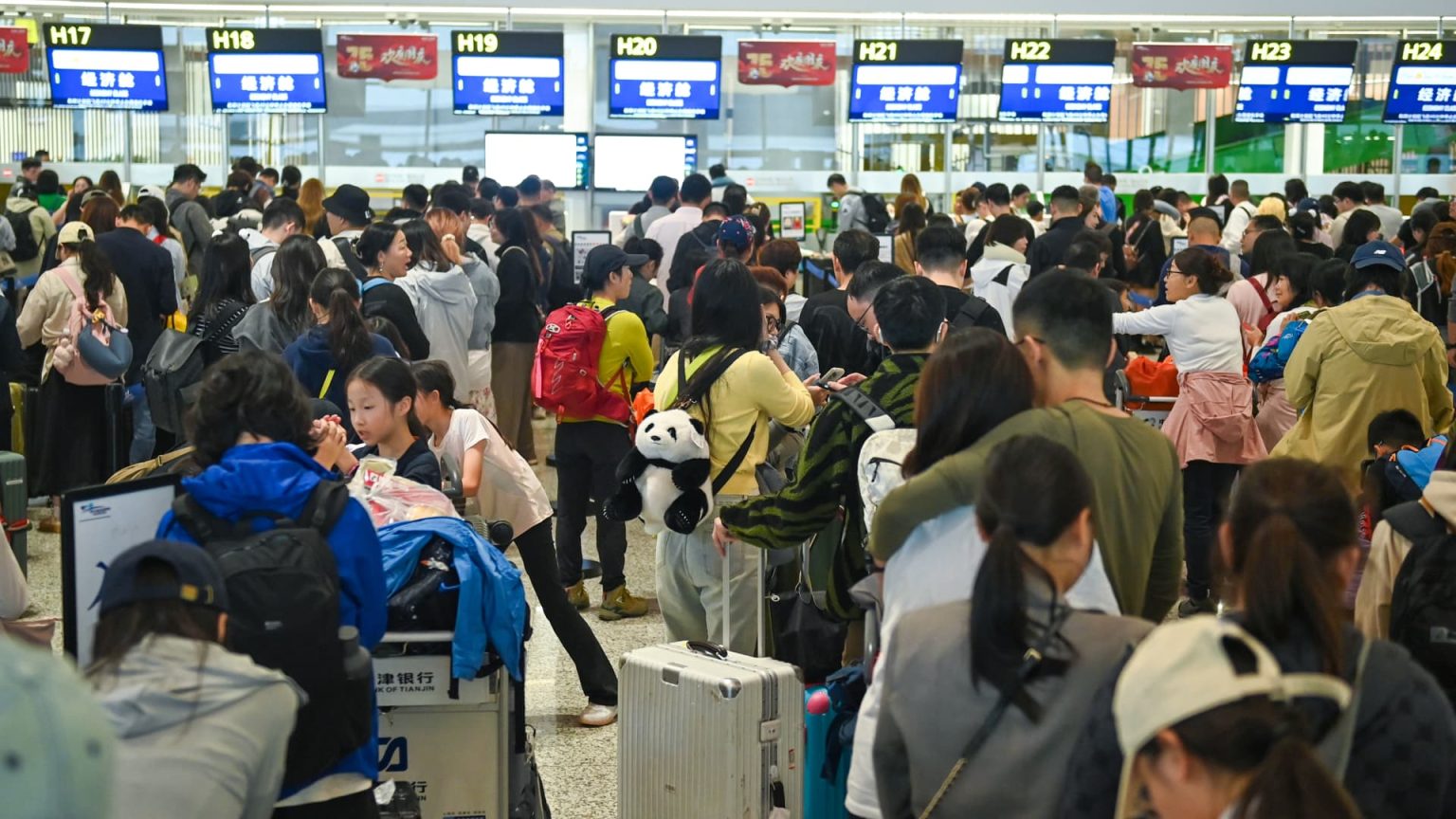China’s Golden Week holiday showcased a trend of cautious spending among consumers, with a focus on experiences rather than material goods. Goldman Sachs analysis revealed that domestic trip spending was about 2% lower than pre-pandemic levels, indicating weak domestic demand and continued economic challenges. While the decline was an improvement from earlier in the year, consumer spending in China has remained lackluster due to uncertainty about the future. The holiday marked the last public holiday of the year in China and attracted a younger demographic, with consumers ages 20 to 25 making up a significant portion of bookings on Trip.com.
During the holiday, consumers were more spontaneous in their travel decisions, with nearly 30% booking travel on the same day or one day in advance, a 6 percentage point increase from the previous year. The average number of days customers booked in advance also decreased, indicating a shift towards last-minute travel planning. The lack of blockbusters in the film industry led to a drop in box office earnings, but the entertainment sector saw growth with more than 90 concerts and a significant increase in orders for performances and exhibitions.
Policy announcements and promises leading up to the holiday, along with a stock market surge, set the stage for increased consumer spending. However, consumers remained cautious with their purchases, opting for more affordable travel options and locations. Kenneth Chow of Oliver Wyman noted that people are more interested in experiences they can share on social media, rather than expensive purchases. This shift in consumer behavior requires brands, including luxury ones, to adapt their strategies to meet the changing preferences of Chinese consumers.
Data from UBS highlighted a recovery in spending during Golden Week, particularly in the retail and home appliance sectors. Retail sales rose by 9% during the holiday, with home appliance sales experiencing a surge of 149.1%. Trade-in policies for appliances and consumer vouchers issued by local governments contributed to the modest recovery in spending. Mainland China saw an increase in domestic trips compared to the previous year and before the pandemic, with popular destinations including Japan, Thailand, and the U.K. Additionally, the average number of mainland China residents traveling abroad also increased during the holiday.
Alipay, the mobile payments operator owned by Alibaba-affiliate Ant Group, reported a 60% surge in overseas transactions during the first four days of Golden Week. Chinese tourists spent significantly on entertainment, food and beverage, services, and transportation in destinations like Malaysia, Korea, Thailand, Hong Kong, and Singapore. Foreign visitors to mainland China using Alipay also spent more than double the amount compared to the previous year. The ease of using mobile pay apps like Alipay and WeChat Pay has made it more convenient for foreigners to make transactions in China. Hong Kong saw an increase in visitors from mainland China during the holiday, with hotels adapting to lower prices by offering more experiences like food and entertainment.


